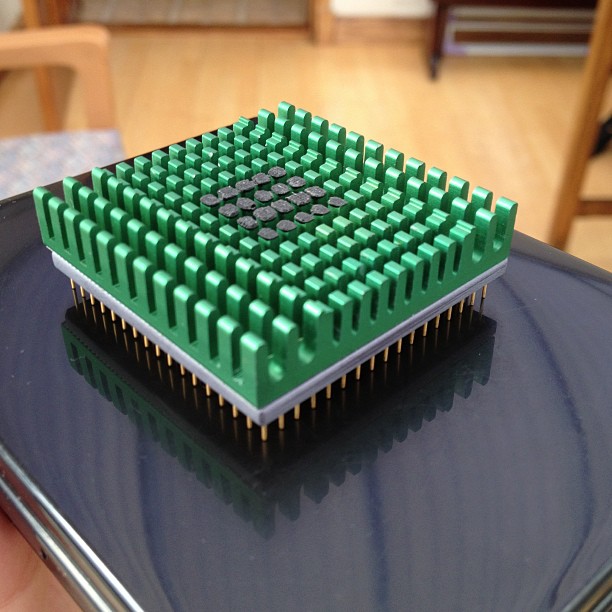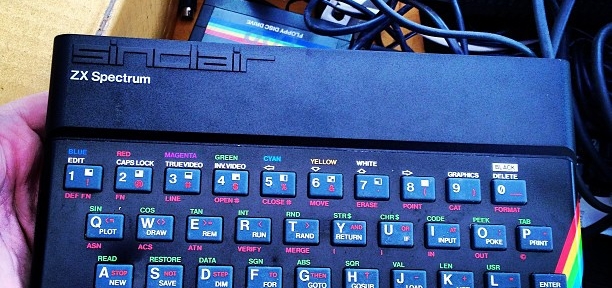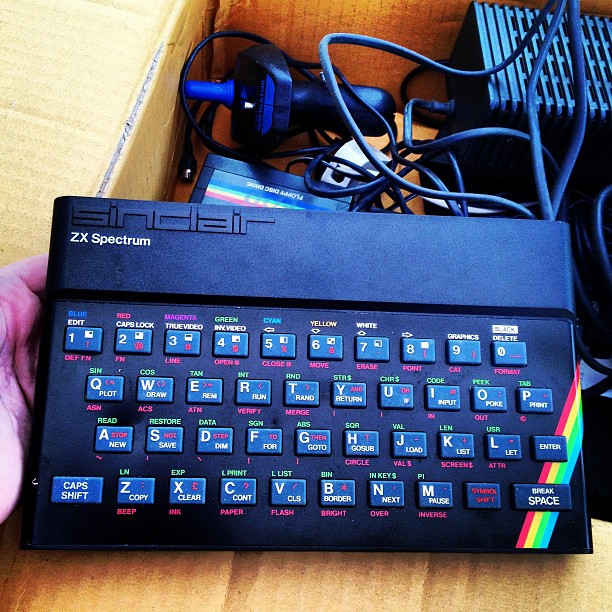Instagram filter used: Lo-fi
Author: scruss
-
A better image rollover with Ultimate TinyMCE
 Probably best to retire my ad hoc image rollover in wordpress, as Ultimate TinyMCE has it covered. Sure, it’s a plugin, but it makes it so much easier. After uploading your two images, select an image and put the two URLs into the Mouse Over/Out fields:
Probably best to retire my ad hoc image rollover in wordpress, as Ultimate TinyMCE has it covered. Sure, it’s a plugin, but it makes it so much easier. After uploading your two images, select an image and put the two URLs into the Mouse Over/Out fields: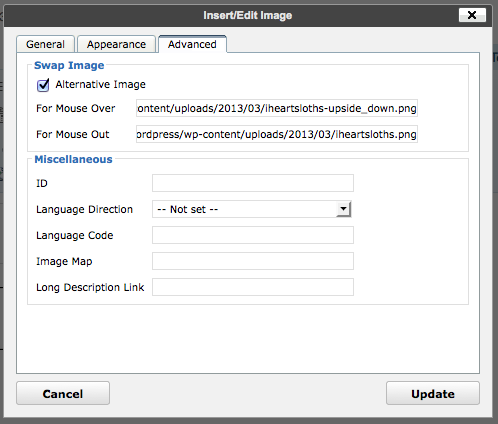
Easy! And no digging into the page source, either.
-
Wind Power, 1940s style
 This is how wind turbines were supposed to look, at least in the 1940s. It’s the experimental Smith-Putnam 1.25 MW unit than ran for a short while on a hill near Rutland, VT. The picture’s from a rather falling-apart copy of Large Horizontal-axis Wind Turbines (Thresher, R. W., & Solar Energy Research Institute. (1982). Large horizontal-axis wind turbines: Proceedings of a workshop held in Cleveland, Ohio, July 28-30, 1981. Golden, Colo: Solar Energy Research Institute) that I rescued from Jim‘s recycling years ago.
This is how wind turbines were supposed to look, at least in the 1940s. It’s the experimental Smith-Putnam 1.25 MW unit than ran for a short while on a hill near Rutland, VT. The picture’s from a rather falling-apart copy of Large Horizontal-axis Wind Turbines (Thresher, R. W., & Solar Energy Research Institute. (1982). Large horizontal-axis wind turbines: Proceedings of a workshop held in Cleveland, Ohio, July 28-30, 1981. Golden, Colo: Solar Energy Research Institute) that I rescued from Jim‘s recycling years ago.The first part of these proceedings has a historical review of the Smith-Putnam turbine, including an excerpt from the S. Morgan Smith Company’s house organ on the project. As the rest of the book is pretty much all about the MOD series of turbines, it’s of less interest. I’ve scanned the bits about the Smith-Putnam turbine, and put them here: NASA_DOE-1981-large_horizontal_axis_wind_turbines-excerpt. If anyone wants the book, let me know. It’s very ratty, but readable.
I’ve written about this turbine before, but in relation to a packet of crayons. More awesome turbine pictures from Paul Gipe: Smith-Putnam Industrial Photos.
-
I’ve been waiting for this day for more than 30 years …
I really never though I’d see this happen, but The Complete Uncle really looks like it’s going to get published.
-
Forward to Libraries: Toronto Public Library added
If you’re starting your research on Wikipedia, you’ll need to see what books are available on a subject for further study. Previously, you’d need to trawl the references manually, but John Mark Ockerbloom‘s Forward To Libraries (FTL) service makes that a whole lot easier. What FTL does is allow you to reach into nearly any library’s catalogue search from a subject link on Wikipedia.
John’s been getting some great press on this service, so I asked him to add Toronto Public Library to FTL. Here’s how it works:
- First, visit the FTL: Toronto Public Library page. This sets a cookie in your browser so it will remember to direct links to TPL.
- Now, let’s do some browsing … how about reading more about Nellie McClung, the Canadian feminist, author, social activist and politician:

- If you scroll down to the External links section, there’s a Library resources box:

- If you select the About Nellie McClung: Resources in your library link, you’ll be taken to the TPL search results for books about her:
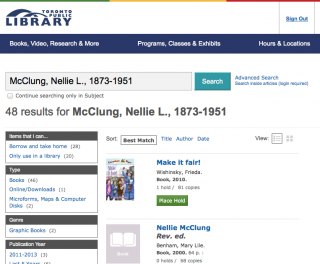
- If you select the By Nellie McClung: Resources in your library link, you’ll see all the books written by Nellie in the Toronto Public Library:
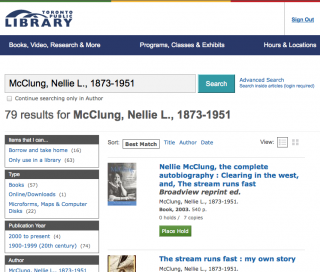
Pretty neat, huh? Try other articles, like Pierre Trudeau, Arduino or the Canadian Shield.
It’s not actually that hard to add Library resources boxes to Wikipedia articles. There’s a tutorial in the Template:Library resources box page that shows you how. Researching the locator is the most difficult part, and that gets a lot easier the more you add.











